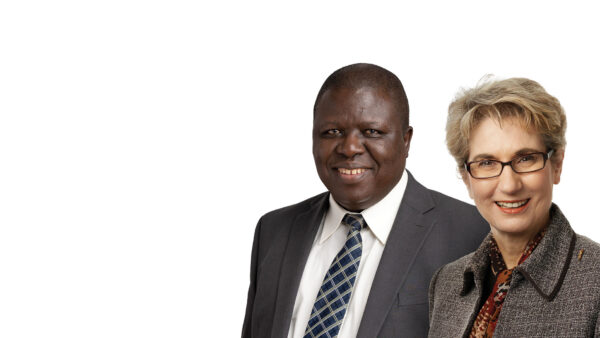Mission quarterlies editor Andrew McChesney talks with Oscar Osindo, interim director at the Institute of World Mission, and Cheryl Doss, recently retired director at the Institute of World Mission, about the missionary experience.—Editors.
Why are missionaries’ lives changed through service?
Oscar Osindo: It happens because there’s no one way to present Christ to the nations. As missionaries we must make the gospel meaningful in people’s social context. Missionaries learn new ways of making themselves and the gospel relevant to their host societies. In the process they also experience transformation. We just finished a reentry seminar last week, and all returned missionaries testified to how mission service impacted them. Incidentally, one of the reasons we hold these seminars is that mission service has changed missionaries’ lives in ways that sometimes cause them to experience reverse culture shock on their return.
Cheryl Doss: First, hearts are changed because of missionaries’ willingness to answer God’s call. God doesn’t just call; He empowers those He calls. Second, because of their commitment to serve wherever they’re called. If God has placed them there, then they can trust He will care for them there. Third, because successful intercultural working and living requires learning to see through others’ eyes. If they want to do what God has called them to do effectively, they must understand the people they’re serving and change the ways they do their work to best represent the gospel message in that context.
Do you see any trends in how lives are changed?
Osindo: In the rare instances that the missionary life remains unchanged, it might be a case of cultural imperialism, in which the missionary feels that his or her culture is superior to that of the host society.
Doss: A growing world trend is the mingling of different cultures because of migration, globalization, and media. This has resulted in opposing trends: idealizing multiculturalism and cultural xeno- phobia. Missionaries must learn how to maintain their self-identity while embracing change. This learning is what the world and the church need today to address the opposing trends. Having a learner’s heart, a willingness to adapt, and the primary identity of being a child of God—as opposed to an ethnic, racial, or national primary identity—tends to assure positive personal growth and change and successful mission service. The same mindset would help communities and the church to address current world trends.
Osindo: No culture is superior or inferior to another, but only the gospel corrects every culture. With that in mind, the missionary is humbled and goes to the mission field as a learner before earning the right to suggest changes to others’ lives.


